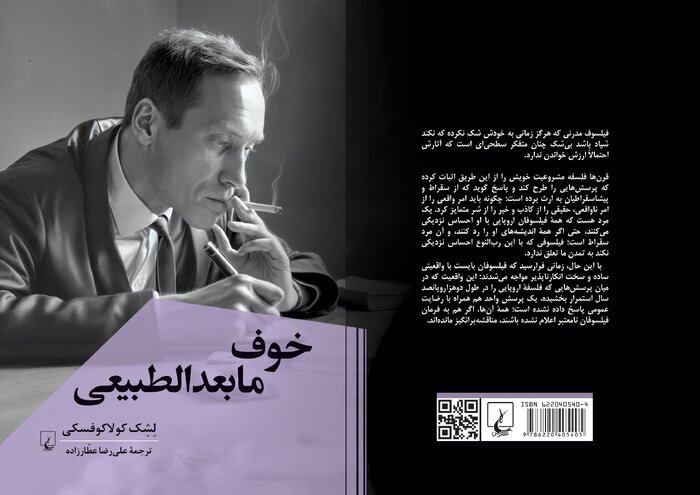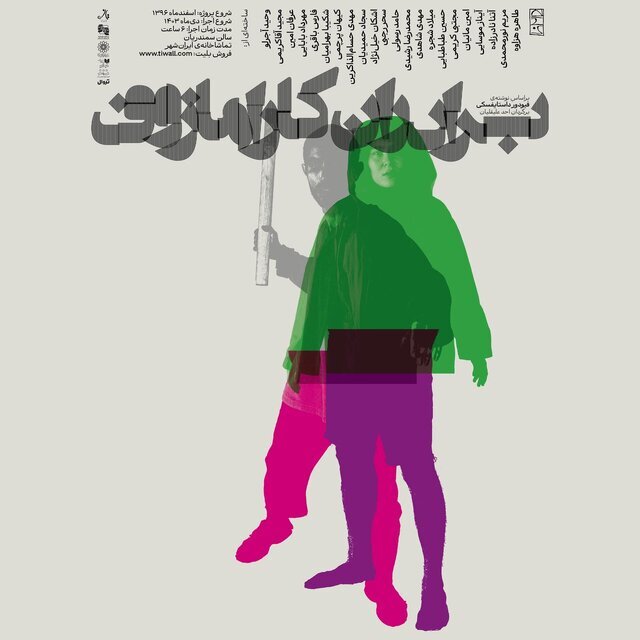Explore the Depths of ‘Metaphysical Horror’: Now Available in Persian!
In an exciting development for literature enthusiasts, the Persian translation of “Metaphysical Horror,” authored by renowned Polish philosopher Leszek Kołakowski, has recently made its debut in the Iranian book market. This insightful work, translated by Alireza Attarzadeh and published by Qoqnoos Publishing Group, spans 175 pages and delves into profound philosophical questions that resonate deeply in today’s uncertain world.
For more than a century, the debate surrounding the relevance and viability of philosophy has persisted, with many asserting that it is either impossible or futile. This discourse traces its roots back to the days of Socrates, yet today’s thinkers continue to grapple with fundamental concepts such as truth, reality, knowledge, and morality. The outcome of these debates might not dramatically alter our daily lives, but they instill a sense of radical uncertainty—a sentiment that Kołakowski refers to as “metaphysical horror.”
As Kołakowski eloquently expresses, “The horror is this: if nothing truly exists except the Absolute, the Absolute is nothing; if nothing truly exists except myself, I am nothing.” This profound statement encapsulates the essence of his work, which aims to navigate the perceived dead ends of philosophical inquiry.
In his incisive analysis, Kołakowski provides a robust introduction to nearly all of Western philosophy. He critically examines the thoughts of several pivotal philosophers, including:
- René Descartes
- Baruch Spinoza
- Edmund Husserl
- The Neo-Platonists
While Kołakowski acknowledges that philosophy may not deliver definitive solutions to these existential questions, he posits that the journey of exploration itself possesses transformative power. Although philosophical inquiry might challenge many of our established certainties, it simultaneously creates space for our spiritual aspirations and religious beliefs.
The book’s final sentence encapsulates a sense of hope that transcends the despair associated with nothingness. Kołakowski provocatively asks, “Is it not reasonable to suspect that if existence were pointless and the universe devoid of meaning, we would never have achieved not only the ability to imagine otherwise, but even the ability to entertain this very thought—to wit, that existence is pointless and the universe devoid of meaning?” The clarity of his inquiry invites readers to engage deeply with the ideas presented.
Leszek Kołakowski (1927-2009) is celebrated not only for his philosophical insights but also for his critical analysis of Marxist thought, particularly through his acclaimed three-volume work, “Main Currents of Marxism.” In his later years, Kołakowski shifted his focus more towards exploring religious themes. During his impactful 1986 Jefferson Lecture, he articulated a poignant perspective on history, stating, “We learn history not in order to know how to behave or how to succeed, but to know who we are.”
In Poland, Kołakowski is not only admired as a philosopher and historian of ideas but also revered as a symbol of resistance against communism. His intellectual contributions have left an indelible mark on contemporary Polish culture, earning him accolades from cultural figures such as Adam Michnik, who described Kołakowski as “one of the most prominent creators of contemporary Polish culture.”
The release of “Metaphysical Horror” in Persian stands as a significant addition to the Iranian literary landscape, inviting readers to engage with Kołakowski’s thought-provoking reflections on existence and meaning. This translation not only broadens access to his ideas but also enriches the philosophical discourse within Iran.
As readers delve into Kołakowski’s examination of philosophical quandaries, they are encouraged to reflect on their own beliefs and the broader implications of his insights. The challenge posed by Kołakowski’s arguments is one that invites a deeper exploration of what it means to exist in a world rife with uncertainty.
In summary, the Persian translation of “Metaphysical Horror” offers an invaluable opportunity for Iranian readers to engage with Leszek Kołakowski’s profound explorations of philosophy, existence, and the human condition. As the literary world continues to evolve, works like this remind us of the enduring relevance of philosophical inquiry and the quest for understanding in an ever-complex universe.






